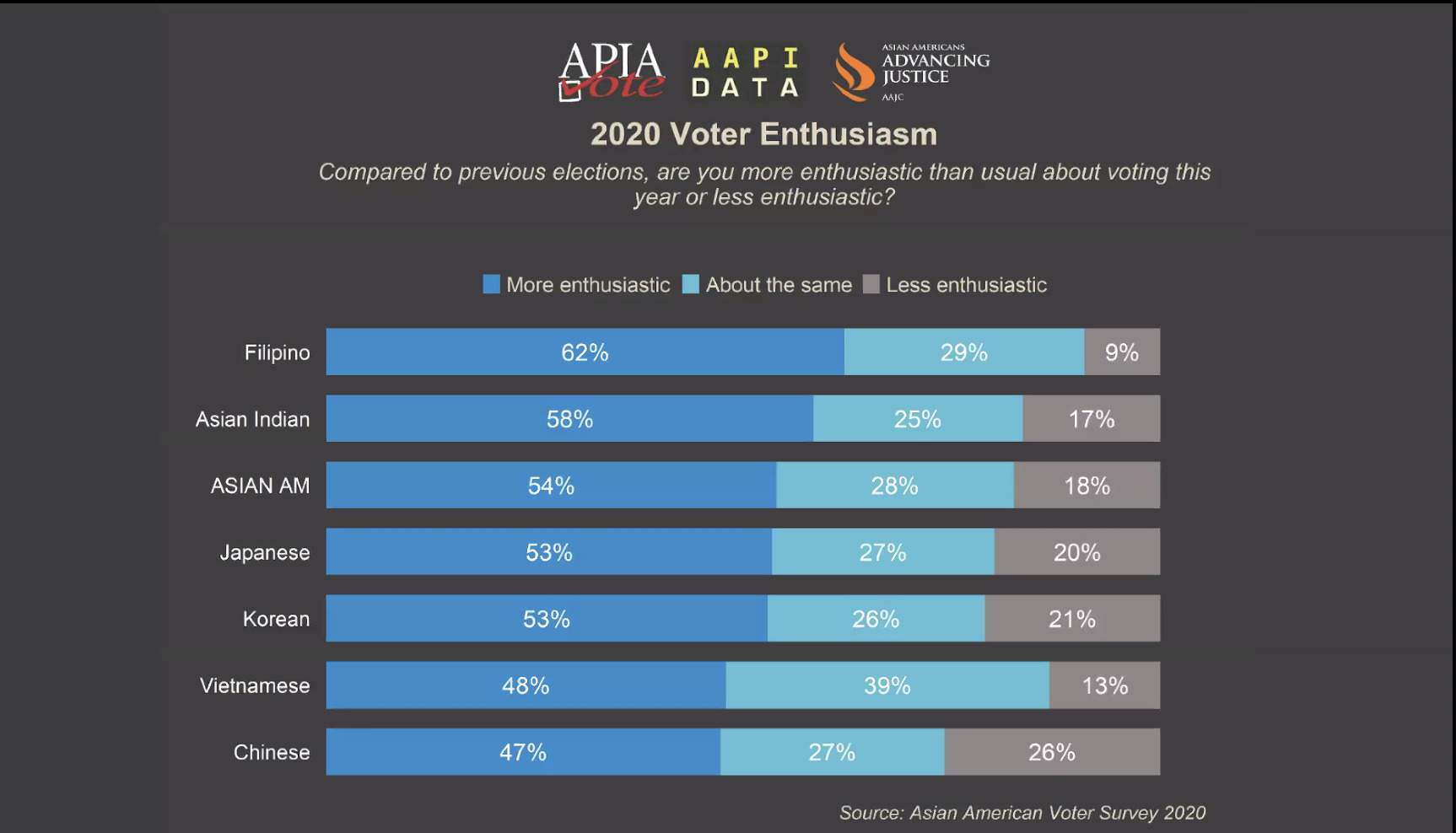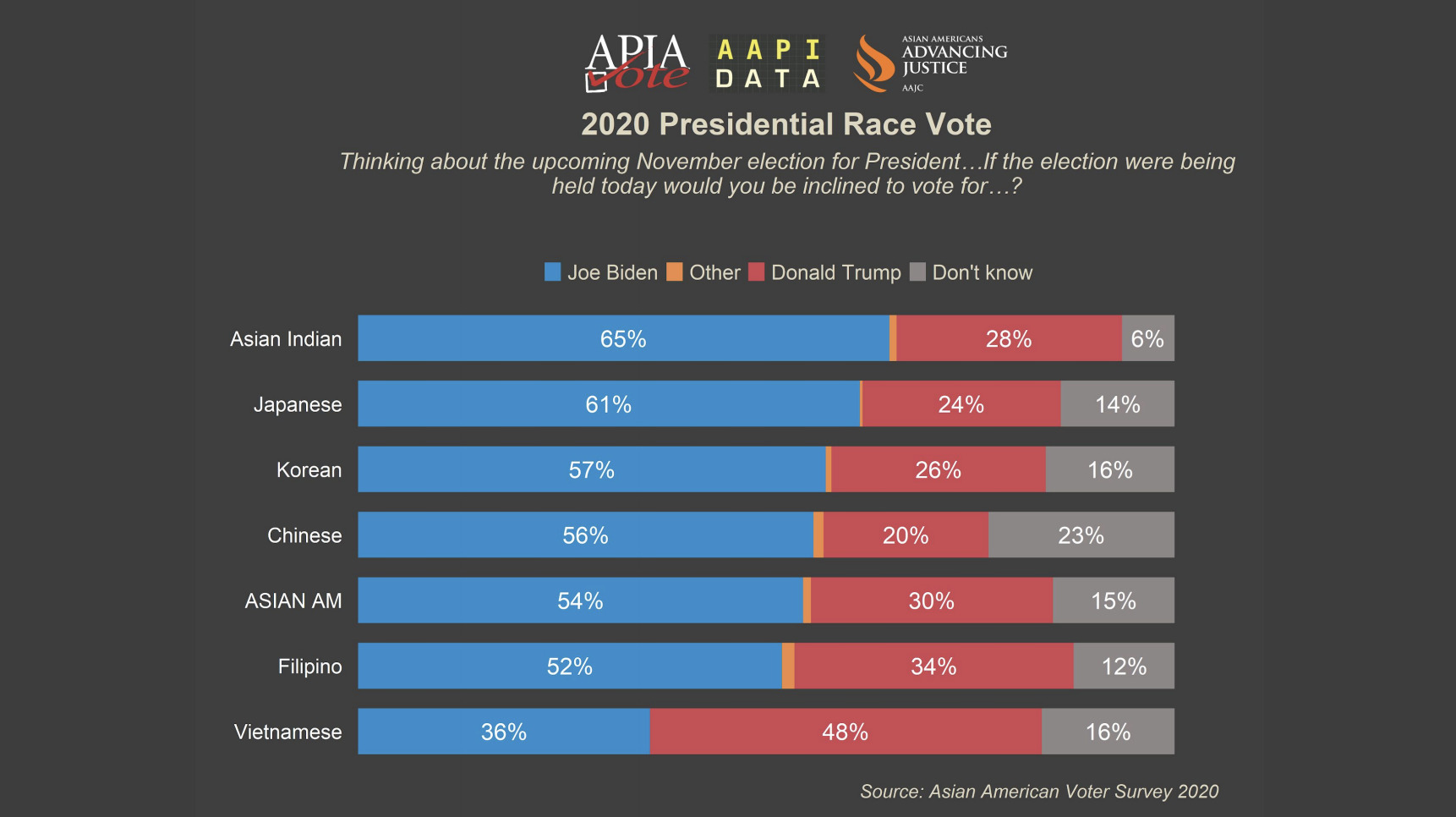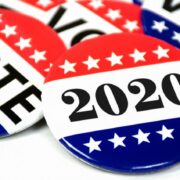Majority of Fil-Ams prefer Biden, but segment shows 2nd highest support for Trump
FILIPINO American registered voters are showing the highest levels of enthusiasm among the major Asian American groups as the 2020 presidential election nears, according to a new survey.
The 2020 Asian American Voter Survey — released on Tuesday, September 15 by APIA Vote, AAPI Data, and Asian Americans Advancing Justice | AAJC — gauges how registered voters are feeling about the upcoming election and candidates, and their positions on certain issues.
The survey, which is one of the few pre-election surveys that offer an in-depth look into the Asian American electorate, found that Asian Americans (54%) are highly enthusiastic about participating in this year’s election, building upon the electorate’s record turnout in the 2018 midterm election.
Of the Fil-Am voters, 62% said they are “more enthusiastic” than they were in previous cycles, the highest level of support compared to the Chinese, Indian, Korean, Japanese and Vietnamese groups surveyed.

“The key findings are that Asian Americans are highly motivated this year. You see high enthusiasm but many are still persuadable [and] they’re not getting contacted by either party,” Karthick Ramakrishnan, founder and director of AAPI Data, said. “So it’s a missed opportunity with less than two months to go.”
The survey was conducted among 1,569 registered voters from the six Asian American communities across the country via telephone and online from July 15 to September 10. (Broken down by group, 263 Filipino respondents participated.)
Despite the enthusiasm, when it comes to contact from either the Republican or Democratic Party, a majority of respondents responded “not at all.” 55% of Filipinos said the Democratic Party has not engaged them, while 56% said the same for the Republican side.
The majority of Asian Americans collectively identified as Democrats, but 31% still identified as independent or “other,” showing an opportunity for either side to capture their votes.
When asked who they are “inclined to vote for” in the presidential race, 54% of Asian Americans are leaning toward former Vice President Joe Biden, while 30% would back a second term for President Donald Trump. However, 15% said they don’t know or are undecided.

Among Fil-Ams, 52% back Biden, while 34% support Trump — the second highest support among the groups after 48% of Vietnamese voters who said they would re-elect the current president.
The survey also asked about the candidates’ favorability with a majority of Asian Americans as a whole saying they have a very or somewhat favorable opinion of Biden, while a majority had an unfavorable view of Trump. Among Fil-Ams, 46% view him “very unfavorable” but 25% say “very favorable.” Vietnamese Americans showed the highest favorability for the president at 35%.
“You see Biden favored over Trump among Japanese Americans, Korean Americans, Chinese Americans and Filipino Americans. This is important because there’s been a lot of speculation, for example, with the Filipino American community and the Chinese American community in terms of how they will vote,” Ramakrishnan said.
Top issues
The survey also took a look at voters’ positions on issues from jobs to health care to gun control. Largely, the data points to Asian American groups moving more progressive.
“This just means that the parties and campaigns, including issue campaigns, have to pay attention to our communities, including those working on environmental issues and gun control,” Ramakrishnan added. “I can’t tell you the number of times people have these stereotypes in terms of these issues not being Asian American issues and we have to change that.”
• Government spending: 39% of Fil-Ams said they would prefer a bigger government providing more services, while 38% said it would depend.
• Healthcare and immigration: 55% of Fil-Ams said they agree that the government should expand access to health insurance for all immigrants, regardless of their legal status. Meanwhile, over 60% said they agree that undocumented immigrants should have the opportunity to become U.S. citizens.
• Climate change policies: A majority of Asian Americans support stronger legislation to reduce the effects of climate change, with 77% of Fil-Ams agreeing.
• Gun control: 51% of Fil-Ams said they “agree strongly” that the U.S. should have stricter gun laws.
How COVID-19, racism affects voters
Since the onset of COVID-19 in the U.S., the Asian American community has largely experienced hate crimes, harassment and other forms of discrimination.
The survey asked voters to rate the level of discrimination against Asian individuals to which 55% of Fil-Ams said “some,” while 48% said they worry very or somewhat often about experiencing a hate crime or harassment because of the stigma around the virus.
Given the protests against police brutality and call for racial and social justice, participants were also asked about civil rights (58% of Fil-Ams strongly in favor), support for reallocating police funds (57% of Fil-Ams agree), and affirmative action (69% of Fil-Ams in favor).
“The Asian American electorate faces greater barriers to voting in 2020 with the fear of anti-Asian violence, COVID-19 infection and confusion about how to vote,” APIAVote Executive Director Christine Chen said, adding that the organization is sending translated mailers to Asian households in battleground states that report they speak a language other than English.
Vote by mail
As the COVID-19 pandemic continues, states are increasing their vote by mail capacity in an effort to slow the virus’ spread and keep communities safe.
Over half of Asian Americans (54%) said they plan to vote by mail or by absentee, while 27% said they would do it in person on Election Day.
Since 1 in 3 Asian Americans said using language assistance would help them cast their ballots, John Yang, executive director of Asian Americans Advancing Justice | AAJC, emphasized provisions in the Voting Rights Act that allow for ballot materials in an Asian language or the ability to bring someone to the polling center who can help you vote if you are not English proficient.
Though the survey only targeted registered voters, this year, Asian Americans are the fastest-growing segment of eligible voters out of the major racial and ethnic groups in the U.S., with 11.1 million eligible to vote, according to Pew Research Center.






